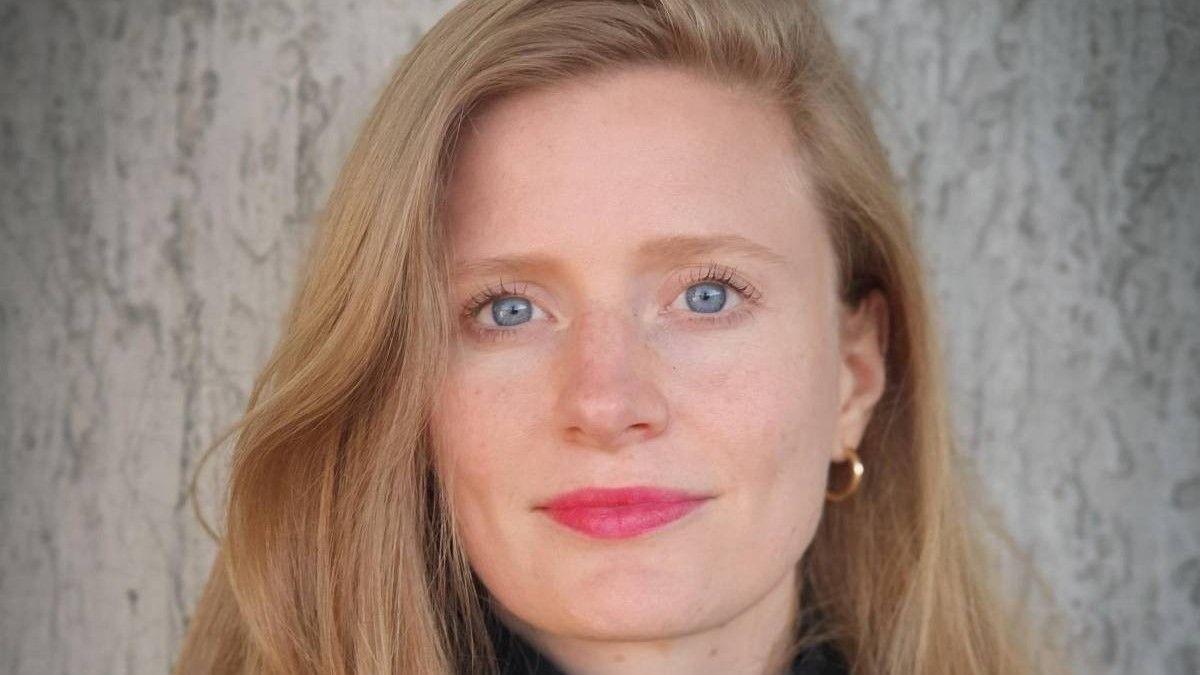The women taking Meta to task after their baby loss
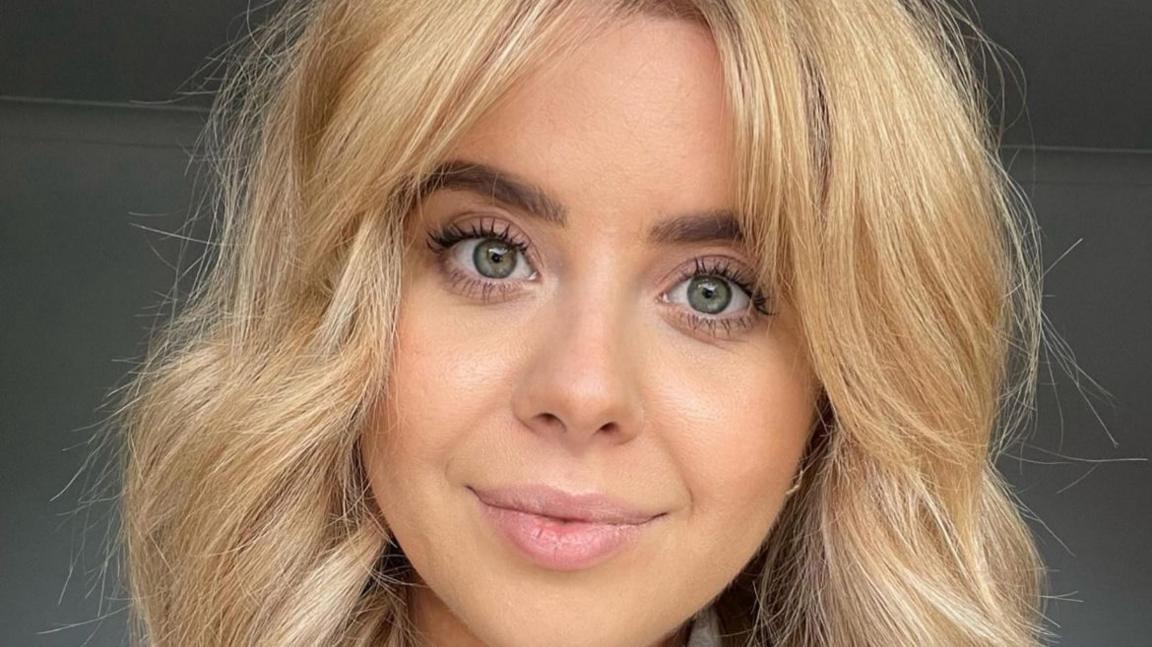
Sammi Claxon has had five miscarriages
- Published
What does my baby look like at six weeks? When's my due date? When should I book my first midwife appointment?
These are just some questions women type into search engines when they find out they're pregnant.
For Sammi Claxon, it was no different. Soon after she started searching for answers, algorithms picked up that she was pregnant, and began targeting her with adverts.
But when she lost her baby due to a miscarriage, the adverts didn't stop.
After her first miscarriage in 2021, Sammi had four more over the next three years.
"As soon as you get that positive test, you feel like a mother," Sammi says. "You have this future plan in your head and when that's stripped away from you, it's awful."
Feelings of shame and embarrassment left Sammi feeling isolated.
She turned to social media for support, and remembers seeing her feed littered with baby-related adverts, which for her were devastating.
Sammi, from Blidworth in Nottinghamshire, ended up taking herself off social media, she says to preserve her mental health.
Like Sammi, Tanya O'Carroll was hit with targeted adverts from Facebook when she discovered she was pregnant in 2017.
"I just found it unnerving - this was before I'd even told people in my private life," she told the BBC.
In March, after Tanya filed a lawsuit, Facebook agreed to stop targeting adverts at an individual user using personal data.
Tanya's lawsuit argued Facebook's targeted advertising system was covered by the UK's definition of direct marketing, giving individuals the right to object.
'Creepy, invasive ads'
Meta - which runs Facebook and Instagram - said adverts on its platforms could only be targeted to groups of a minimum size of 100 people, rather than individuals, so did not count as direct marketing.
But the Information Commissioner's Office (ICO) disagreed.
Tanya said Meta had agreed to stop using her personal data for direct marketing purposes, "which in non-legalese means I've essentially been able to turn off all the creepy, invasive, targeted ads on Facebook".
As far as she and her legal team are aware, she is now the only one of the UK's over 50 million Facebook users who is not targeted with personalised adverts.
Tanya adds there are now more than 10,000 people who have raised an objection to Meta to stop using their data for direct marketing - which may lead to further lawsuits.
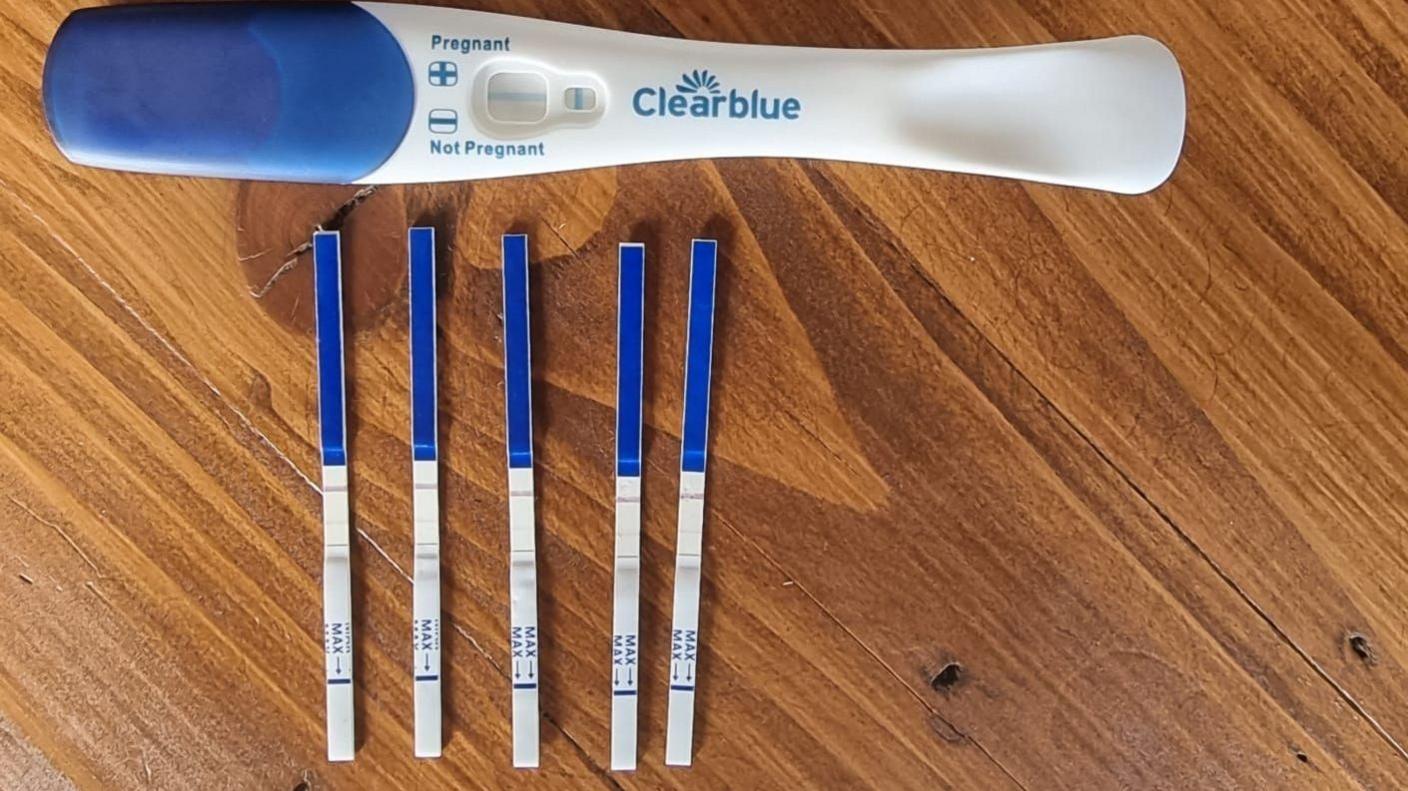
Rhiannon Lawson threw herself into planning for her baby when she found out she was pregnant
But the case has not changed anything for many women who have lost their babies but were still "bombarded" with pregnancy-related adverts.
This includes Rhiannon Lawson, from Suffolk, who told the BBC seeing those two blue lines on her pregnancy test filled her and her partner Mike "full of hope".
Like many other expectant parents, they gave their growing baby a name.
"We had named them Fantus - after a children's character we saw constantly while visiting friends in Denmark," Rhiannon says.
But after a bleed early on, a test showed Rhiannon had miscarried at eight weeks.
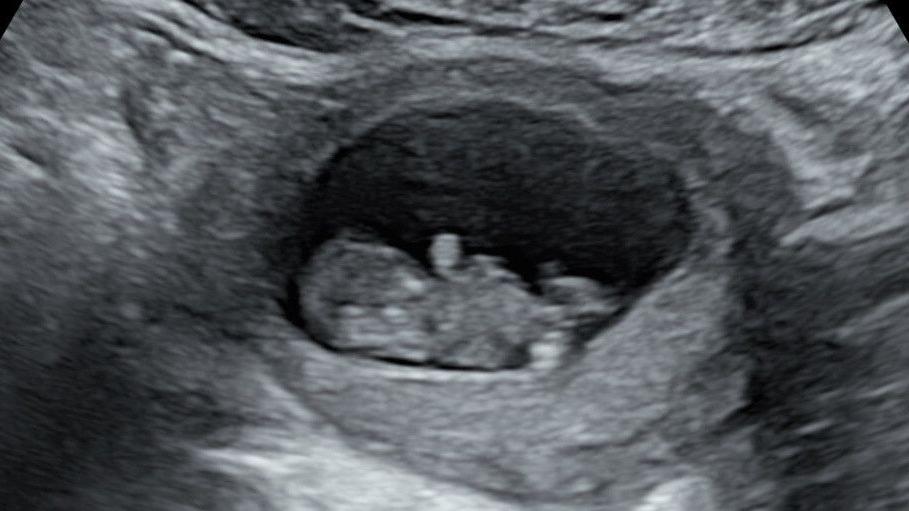
Early scans of baby Hudson were initially reassuring to his mother Rhiannon
In October last year, she found out she was pregnant again and this time was reassured with some early scans.
But then came the 20-week scan, which revealed the baby boy - who the couple called Hudson - had a severe form of hypoplastic left heart syndrome, external.
"There was no way forward," she says, and Hudson was stillborn in March at 22 weeks.
Devastated, Rhiannon and her partner were using social media for support, as well as playing online word games together.
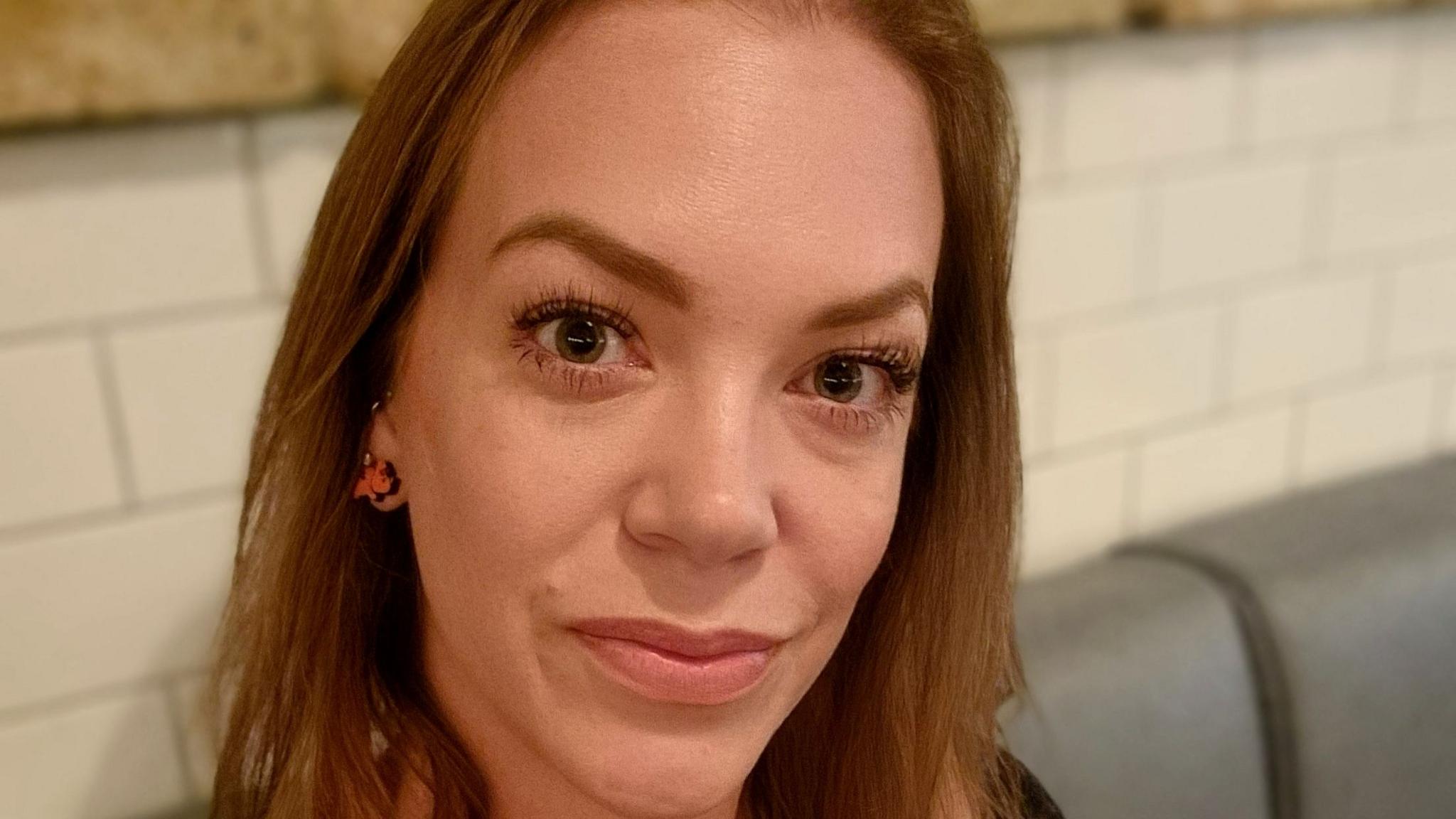
Rhiannon has been pregnant twice - but lost both her babies
But after saying goodbye to their little boy, the pair were still confronted with baby-related adverts on their phones.
Rhiannon says: "Pregnancy apps still send milestone notifications. Baby stores offer discounts on items we will never need. Adverts for prams and newborn essentials pop up between ordinary scrolling.
"Technology doesn't understand loss and in moments when we least expect it, it reminds us with devastating precision of what we no longer have."
'Consent or pay'
In late September, Meta announced it would be introducing a subscription service for users who do not want to see adverts in the UK.
It means that to stop seeing adverts, you'll have to pay £2.99 a month.
The advertising model, known as "consent or pay", is a way for owners of digital platforms to generate revenue from users who decline to be tracked.
But Rhiannon says it won't help.
"If they [Meta] cared about their users, charging them not to be shown upsetting content seams unreasonable," she said.
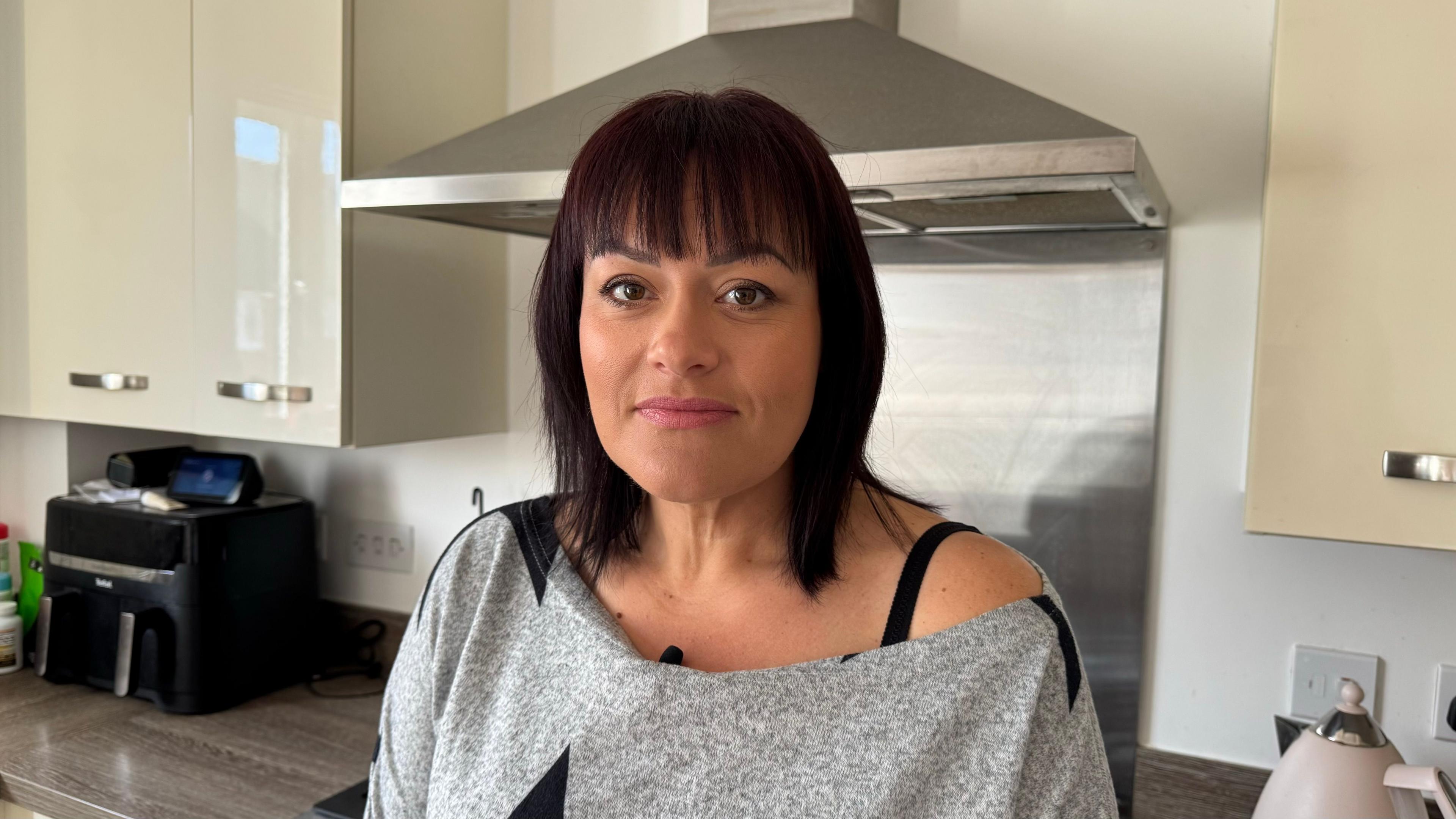
Hayley Dawe says she was targeted with adverts despite changing her preferences
After three rounds of unsuccessful in vitro fertilisation (IVF), Hayley Dawe and her partner Anthony were "floored" to find out they were expecting twins, and immediately joined lots of online twin groups and scoured the internet for tips and advice.
They already had a six-year-old daughter, so were excited over their two new additions.
But that excitement turned to devastation when an early scan confirmed one of the twins had died a week before.
And on the day of her next scan, the room fell silent as her other twin also had no heartbeat - and had died the day before.
"I broke," she says.
Hayley, from Burton-upon-Trent in Staffordshire, took this video of her Facebook newsfeed, which showed four pregnancy adverts in just over 20 seconds
Hayley sought support in online forums - but found herself confronted by adverts for, among other things, maternity wear, pregnancy pillows and pregnancy tracker apps.
For Hayley, coming off social media "was not an option", as that's where she found other women going through similar experiences.
Meta has said Facebook users can block access to ad topics they do not wish to see through their settings, which offers parenting as a topic alongside things like chocolate, board games and wrestling.
Hayley said she was shocked pregnancy was not listed as a separate category and told the BBC switching off the parenting option made no difference, with at least five pregnancy ads appearing afterwards.
She marked some of the adverts as spam, but says three weeks on, she was still being exposed to repeated pregnancy promotions.
Like Rhiannon, Hayley is not in favour of a paid subscription.
She says: "Why do I have to pay when there are options to change preferences that don't seem to work?"

Arturo Bejar says the "mark as spam" button does very little
Sammi, Rhiannon and Hayley's experiences of triggering content is no shock to former Meta employee Arturo Bejar.
"The mark as spam [button] was not connected to anything," Arturo, who was part of the senior management team, says.
"We found that in some cases, help reports were getting thrown out because there were too many of them."
He worked for Meta between 2009 and 2015, and again from 2019 to 2021. Arturo also gave evidence to US Congress in 2023 about how he believed Meta was not keeping users safe.
Arturo adds: "They love saying that they care, but they just care about getting more users on their platforms, so that they can make more money. I think it's inexcusable. It's inhumane."
In response, a Meta spokesperson said: "We take these concerns seriously and continue to improve the sensitivity and accuracy of how ads are delivered.
"Our systems are designed to share the most relevant and useful content, but they aren't perfect and some ads may occasionally appear inconsiderate or out of place. As we continue to refine our models, we encourage people to opt out of certain categories."
'It reminds me of everything I lost'
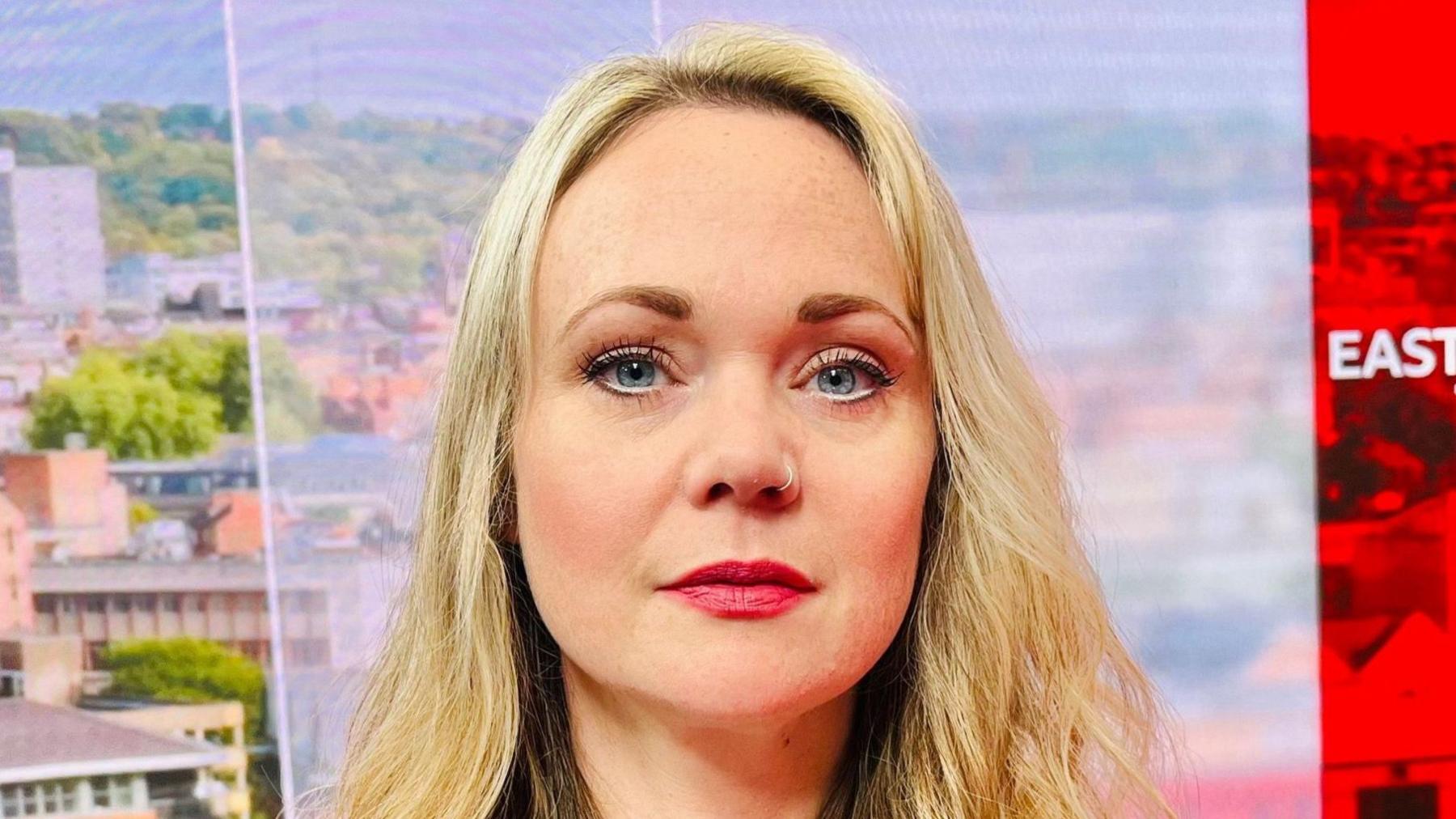
I know how distressing these adverts are, because I'm part of the same parenting club that no-one wants to be part of.
I gave birth to my daughter Liliana on 18 April 2020.
I carried her for 40 weeks, and then her heart stopped beating inside me - two days after her due date.
I spent a few precious hours trying to memorise her face, her weight in my arms, and how her skin felt to touch.
I struggle with the word "loss", because I didn't lose her like a set of keys down the back of the sofa.
Since Liliana's death, I've had a daughter and a son, and two other miscarriages. I always say I'm a mum to two babies I can hold in my arms - and three I hold in my heart.
When I'm at my most vulnerable, scouring social media for support, I'm slapped in the face by targeted ads of babies giggling, pregnancy bumps blooming, happy families, reminding me of everything I've lost.
If you have been affected by any of the issues raised in this article, you can visit the BBC Action Line for help.
This piece was updated to clarify that Meta says Facebook users can block some adverts through their settings.
Get in touch
Tell us which stories we should cover in Nottingham
Follow BBC Nottingham on Facebook, external, on X, external, or on Instagram, external. Send your story ideas to eastmidsnews@bbc.co.uk, external or via WhatsApp, external on 0808 100 2210.
Related topics
- Published26 September

- Published22 March
